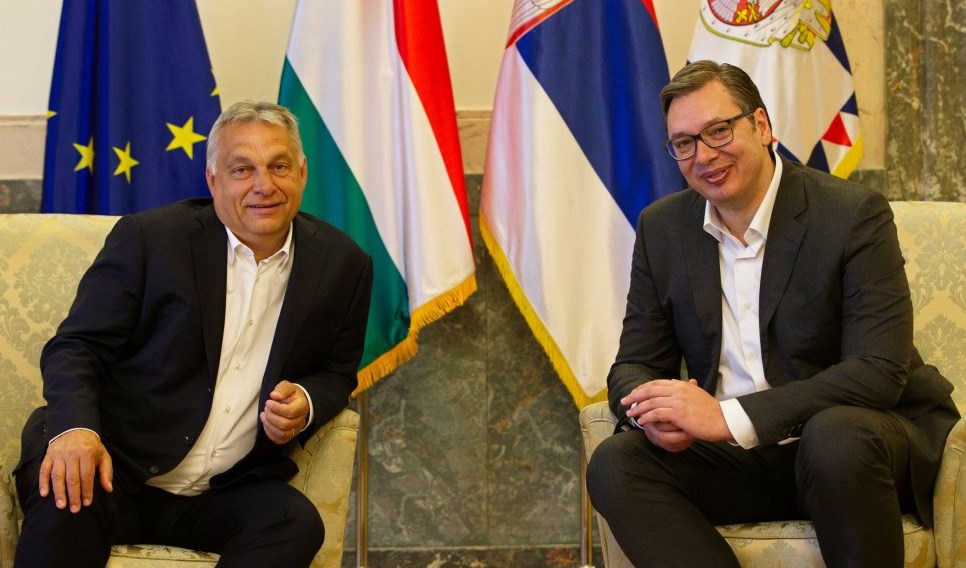Serbia reveals US, UK intentions to push for invasion by Hungary
Hungarian Prime Minister Viktor Orban discloses US and UK intentions to push Hungary to invade Serbia in 1999 during talks with Serbian President.
-

Hungarian Prime Minister Viktor Orban and Serbian President Aleksandar Vucic (EPA)
Serbian President Aleksandar Vucic disclosed on Saturday that American and British leaders, including but not limited to Bill Clinton, had pushed Hungary to invade Serbia territories in 1999. Hungarian Prime Minister Viktor Orban, who had repeatedly declined, has informed Vucic of the request.
Vucic stated in a televised address that the US and UK requested to advance on Serbian territory and sought to divide the Yugoslav army on two fronts, Kosovo and Hungary.
“Clinton and the British asked [Orban] to attack Serbia from the north so that they could extend our forces from Kosovo and Metohija to Vojvodina,” he explained.
Orban, who was one year into his first term at the time, rejected and, with the aid of then-German Chancellor Gerhard Schroeder, resisted "pressure from the White House."
During a recent meeting, Orban informed Vucic about the Western request and the former gave the latter permission to make this information public, said the Serbian leader.
In 1999, NATO undertook a military operation against the Federal Republic of Yugoslavia, which at the time consisted of just Serbia and Montenegro. NATO allied with ethnic Albanian separatists fighting with Serbs for the control of Kosovo, a Serbian territory.
Hungary had joined NATO that year, but not for the purpose of joining this campaign.
After revealing the US' approach, Orban then proceeded to talk about the UK, according to Vucic. He counts that back in the days when Orban arrived in the UK for discussions with Prime Minister Tony Blair and former Prime Minister Margaret Thatcher, the latter saw him in Downing Street and told him, "It bothers me a lot that you refused to attack Serbia, that's why more British soldiers will die," Vucic recounted.
In the end, no British troops were killed throughout the war. With the signing of the Kumanovo Agreement in June 1999, hostilities ceased, and NATO troops proceeded into Kosovo, where they remain to this day. The bombing campaign was the first time the US-led alliance employed military action without the consent of the UN Security Council, and it is still widely viewed as illegal by much of the world.
Read more: NATO to send more KFOR troops to Kosovo

 2 Min Read
2 Min Read








